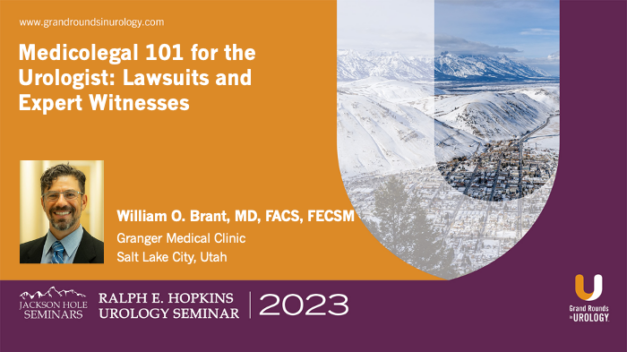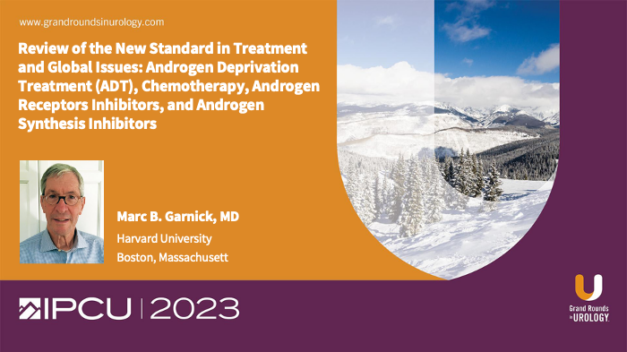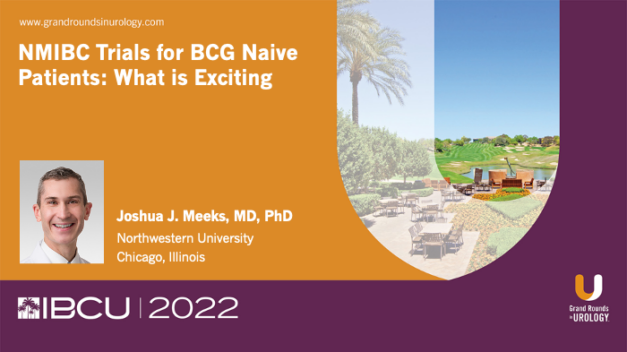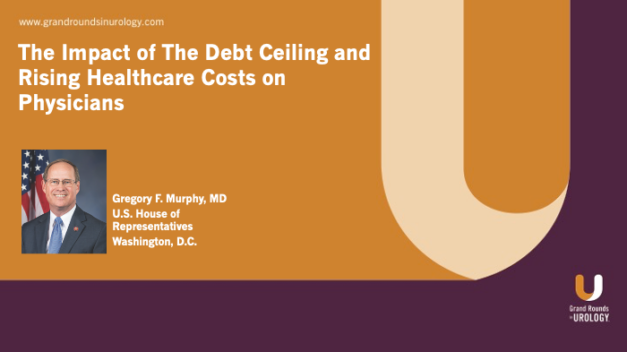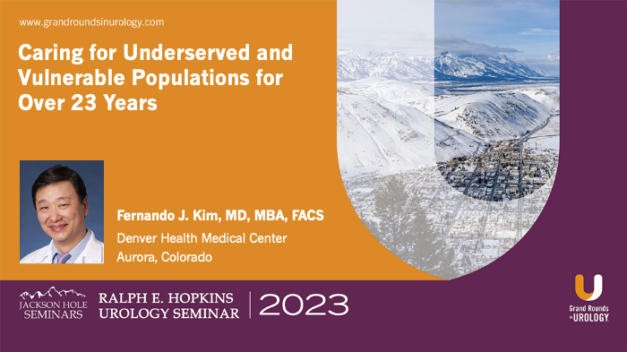Medicolegal 101 for the Urologist: Lawsuits and Expert Witnesses
William O. Brant, MD, FACS, FECSM, a urologist at the Veterans Affairs Medical Center in Salt Lake City, Utah, discusses medical lawsuits from the perspective of a physician being sued or suggested preparation to be an expert witness.
He describes the four elements of malpractice patients need to prove when filing a summons or other “pleadings,” which are: A professional duty is owed to a patient, that duty has been breached, this breach caused an injury, and damages (either monetary or punitive) resulted from that injury. To prove negligence, the conduct of a physician is judged against a standard, defined as care that a “reasonable,” similarly-situated urologist would have provided. From there, the process of discovery ensues. Then, the case may or may not proceed to trial, although due to the United States’ “adversarial” system, it is rare this happens. In terms of lawyers playing a role in medicolegal cases, it is important to note that plaintiffs typically work on contingency and take cases with high monetary damages and likely appeal to juries, while defendants are typically appointed by a medical malpractice company.
For the urologist cautious about patients suing, Dr. Brant points to a descriptive series review that reported that the leading reason for choosing to litigate is a perceived poor relationship with the provider. In his data, patients who sue often have a poor relationship with their provider or medical malpractice was suggested by another provider. In an AUA survey, while 63% of participants were named in a suit, 47% dropped without financial settlement.
Despite the low patient success rate of 4%, lawsuits can affect urologists. In the study 60% of participants considered limiting their scope of practice with ramifications of 27%-39% experiencing symptoms of major depressive disorder. Brant highlights that lawsuits can feel like a personal assault or failure, but they are truly about compensation.
In his personal experience as an expert witness, Brant has been involved in about 100 cases over 20 years. Qualifications include specialized education and practical experience, but vary by state. The AUA Expert Witness Affirmation Statement, signed as part of AUA membership, supports testifying within your field, distinguishing between bad outcome and bad practice, and being willing to testify for plaintiff or defendant as “you’re not on anyone’s side.”
When looking for an expert witness, Brant thinks lawyers are looking for consistent, strong, credible testimony. Lawyers ask a lot of “why” questions to learn an expert’s theory and factual basis, in addition to how they would handle cross-examination. When acting as an expert witness, Brant recommends: Don’t elaborate or volunteer information. Methods that can be used against the expert witness include trying to blame a provider, multi-part or repeated questions, and agreeing to generalizations or “standard” texts. Brant also suggests avoiding answering a question you don’t understand. An expert witness can ask questions or clarify, and he reminds any potential witnesses it is okay not to have the answer. He also recommends avoiding absolutes and adopting the language of a question if it is misleading or inappropriate.
Read More
